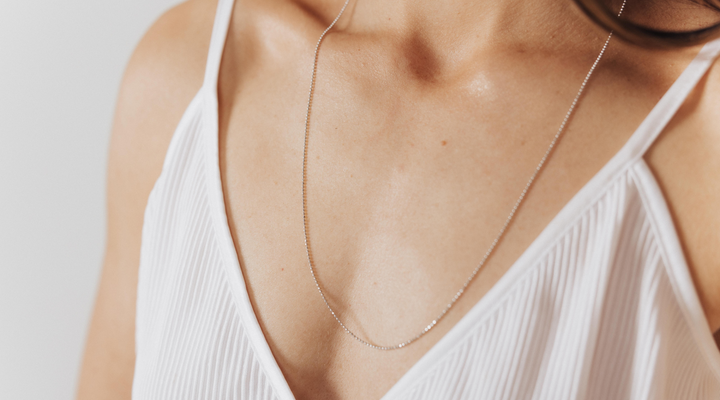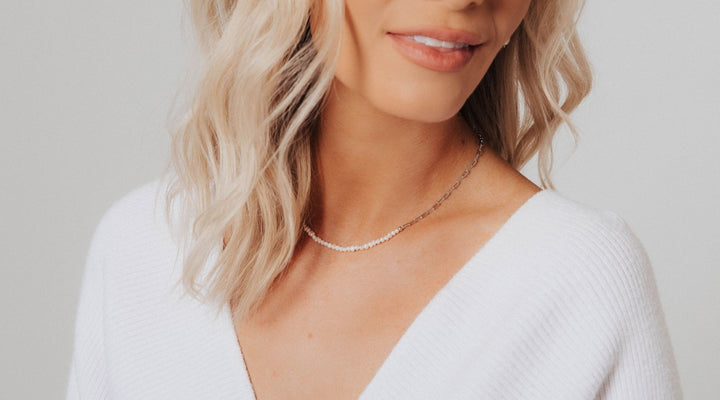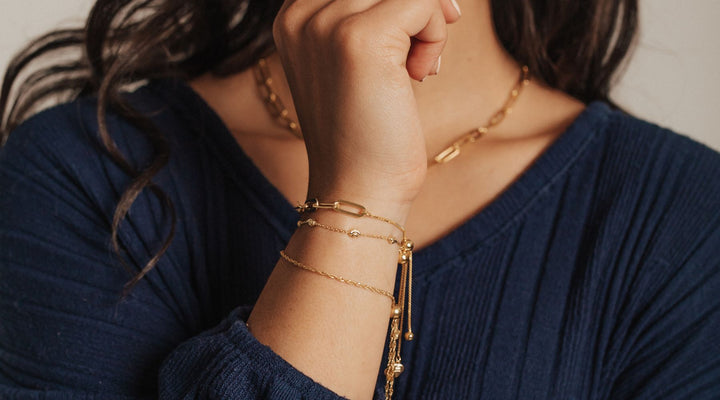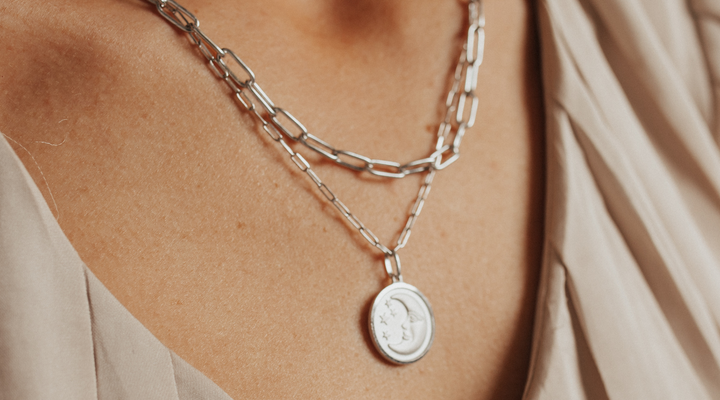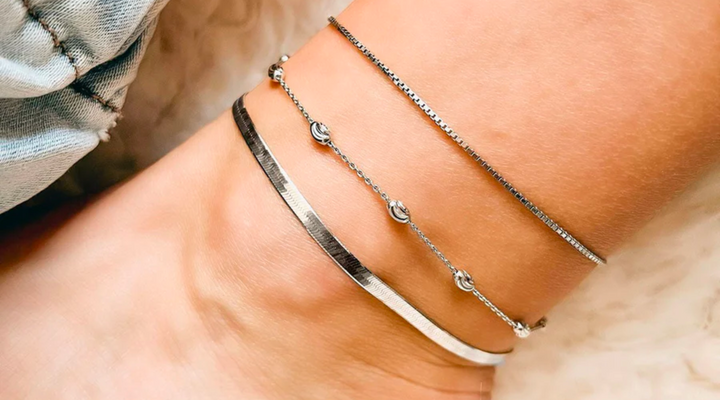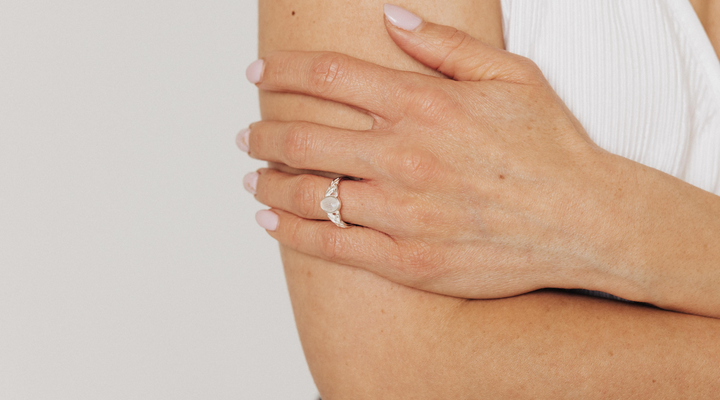How to Tell if a Crystal Is Real | 9 Best Ways & Common Fakes
Posted by Deven Davis on
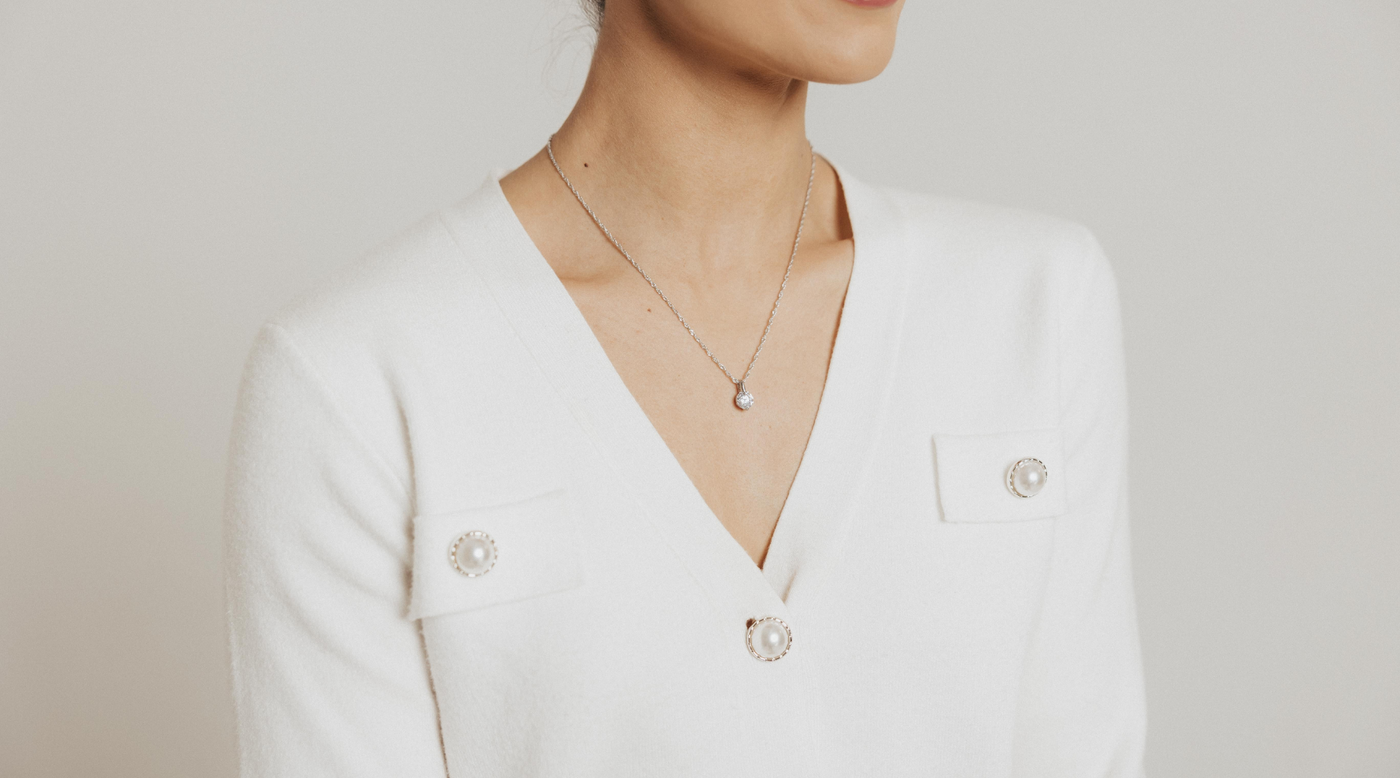
How to Tell if a Crystal Is Real | 9 Best Ways &Common Fakes
Keyword(s): how to tell if a crystal is real
With alternative wellness trends going mainstream, it's clear that we've entered a new stone age. America's demand for overseas crystals and gemstones has skyrocketed in the past few years, with more buyers than ever choosing various stones for their mystic properties, wellness benefits, and beauty in jewelry settings.
Sellers can hardly keep up with that high demand, and in some cases, they've turned to shady sources instead. Fake crystals and counterfeit gemstones are common, and it's not always easy to know how to tell if a crystal is real.
Fortunately, there are a few tips that can help you separate genuine gems from their fake counterparts. Here's what you should know.
1. Cost
The first way to tell if a crystal is real is by considering the cost. If the price seems too good to be true, it probably is!
Real crystals can be expensive. This is a sign of their scarcity and authenticity. The price range can vary between types of crystals, but you should never expect to get any crystal for a few dollars.
If a retailer, especially an online seller, has put a low price tag on their stones, move forward with caution! Use the tests below to judge whether the item is fake.
2. Strange Names and Origins
If the details about the crystal you're buying seem off, it should raise a red flag.
Some retailers list their crystals under strange, cutesy, eccentric, or misleading names. They may assume that the buyer doesn't know enough to realize that the strange name should only be for rare stones. The name may even be pulled out of thin air!
You might also notice that the seller has listed a crystal's point of origin as somewhere unusual. Certain types of jasper, for example, only come from Madagascar, so it should be a red flag if the seller mentions that they come from elsewhere.
If the seller seems confused when you ask questions or hesitates to give straight answers about the crystal's name or origins, skip the purchase! This is especially true with expensive gemstone jewelry. If you do buy the stone, continue to the following methods to learn how to test if a crystal is real.
3. Color
Real crystals are always unique. They'll come in different shades and with different distributions of colors. Some types of crystals may have darker areas or color variations, while others may have little to no color variations.
If you're wondering how to know if crystals are real by sight alone, do a quick online search to find pictures of the type of crystal you have. Take a look at the distribution of color in your crystal and compare it to the photos online.
Natural amethyst, for example, may have different shades of purple and lavender throughout the stone. However, clear quartz should have little to no color variation.
You should also be on the lookout for color shades that are far brighter than what you'd expect from the photos online. The dying process for fake crystals can create unnatural, saturated, or even neon hues. You may also notice signs of streaking from the dye or darker lines where the dye collected in the cracks of the fake crystal.
Sometimes, this dye will fade if you leave the crystal outside in the sun. With a poor dye job, some of the pigment may even come off with a damp cloth. If you notice any pigment coming from the crystal, it's an obvious fake!
4. Patterns
Many crystals have interesting patterns across their surface. Flecks of different colors or sections with different minerals may create a unique look.
This is especially true around the edges. Real crystals have unique ridges, facets, dents, scratches, and indentations.
However, the look of a fake crystal might be a bit too perfect and polished. Total symmetry, a lack of imperfections, and consistent patterns throughout the stone should be red flags.
5. Clarity
Natural crystals that come from the earth are also unique on the inside. If your crystal is semi-translucent, you should expect to see small veins and fractures within. Scratches and tiny particles are also common.
These distortions may make the crystal look blurry in some areas. A real crystal should distort the light, making it hard to see images or text on the other side of them. When you shine your phone's flashlight through the crystal, it should look hazy or opaque, not clear.
If the crystal's interior looks a little too perfect, you may be dealing with a fake. If you don't see distortions, the crystal may be synthetic or even made of glass. Clear angles and a polished look with high transparency should always be red flags.
Another common red flag is air bubbles. Natural crystals don't have air bubbles, as they often form under high pressure. These air bubbles may be tiny, so grab a magnifying glass for a closer inspection.
6. Weight
Most crystals form under pressure, and they often have various dense metals and minerals within them. As a result, crystals should feel heavy when you pick them up. If you're wondering how to test if a crystal is real at home, you may only need to hold one in your hand!
Compared with real crystals, fake crystals are often lighter. Instead of minerals, these crystals use resin, plastic, acrylic, or glass. If the crystal doesn't feel as heavy as it should, you may be looking at a fake.
However, this test doesn't work with all types of crystals. Amethyst, hematite, and fluorite, for example, are easy to fake with the same weight as their genuine counterpart.
7. Temperature
For certain crystals, the temperature you feel when touching it may be a red flag.
Real crystals should feel cold to the touch. They'll warm up when they sit against your skin for a while, but they won't retain that heat for long.
Fake crystals often match the ambient room temperature or feel lukewarm. They also warm up with ease, and they'll often retain that heat for a few minutes.
8. Scratch Test
If you can't judge your crystal using the tactics above, there's another tried-and-tested method worth using.
Each type of crystal or gemstone has a predetermined level of hardness. This is easy to understand by checking the Mohs scale for your stone. If you don't mind dealing a tiny bit of damage to your crystal, you can use this scale to do a scratch test and find out if the stone is fake.
If you have a diamond, for example, nothing you own should be able to scratch it.
With topaz, on the other hand, you should only be able to scratch it with something as hard as ceramic or concrete. If you have turquoise, softer materials like glass can scratch it. If you have malachite, even a fingernail should scratch the surface.
If you notice that your stone differs from what you should expect from its rating on the Mohs scale, you may have a fake on your hands.
9. Flame Test
Wondering how to tell if a crystal is real with a lighter? The flame test is a popular option for finding out if you've bought a counterfeit stone.
Most natural crystals are hard enough that exposure to fire for a few seconds won't do any damage. They don't contain materials that melt or warp with heat.
Fake crystals, on the other hand, often contain materials that react to heat. Plastic and dyes may burn once the flame gets close.
To perform this test, consider your safety first. Head outside and grab a pair of tongs you can use to pick up the crystal. Use the tongs to hold the crystal over the flame of a candle for 15-20 seconds.
If you notice dripping, bubbling, smoke, strange smells, or warping, your crystal may be fake.
However, this technique won't work on glass. It also isn't safe for certain types of crystals, including amethyst and celestite, as these stones may crack from the heat.
Common Fakes
Some crystals are more common than others. This is either because they're easier to fake or because demand for those types of crystals is so high. If you're buying any of the types of crystals below, use abundant caution:
- Quartz
- Turquoise
- Jade
- Moldavite
- Obsidian
- Amethyst
- Lapiz lazuli
- Citrine
- Agate
- Tanzanite
- Larimar
- Peridot
- Malachite
- Fluorite
- Opal
- Ruby
Whenever you buy any of these types of crystals, it's even more important to use the tips above to determine authenticity.
Know How to Tell if a Crystal Is Real
If you love getting your hands on the perfect natural stones, it's crucial to know how to tell if a crystal is real. As you search for genuine items, the tips above can help you separate the real stones from the fakes.
When you need to be sure you're buying a genuine crystal or gemstone, you can also follow one of the easiest tips of all: buy from Roma Designer Jewelry! Any gemstones we use in our jewelry are authentic, so you'll never have to worry about testing each piece. Shop our collections today or contact us for more information.










